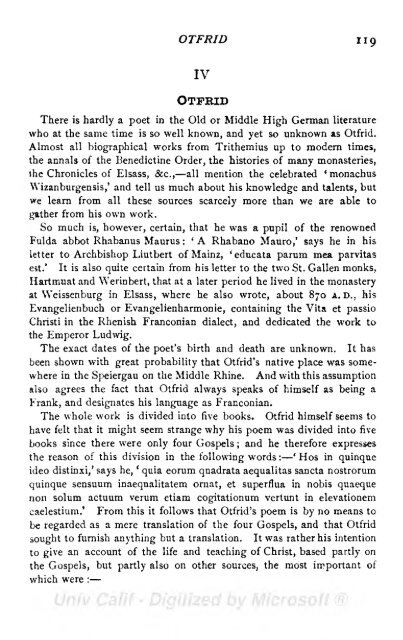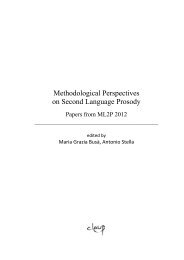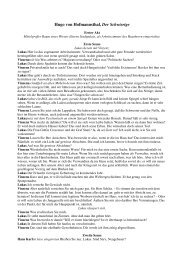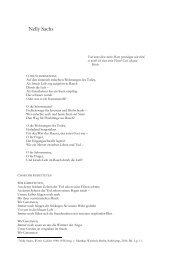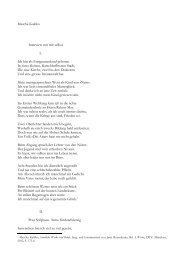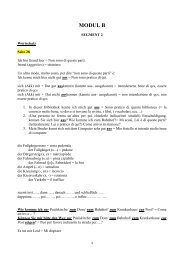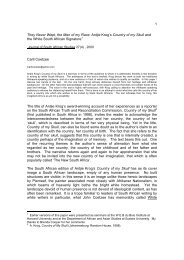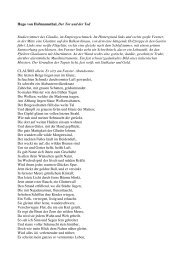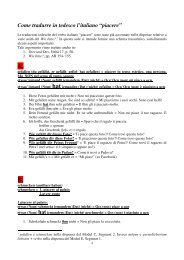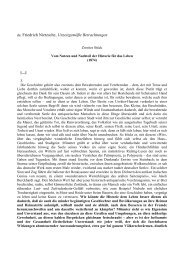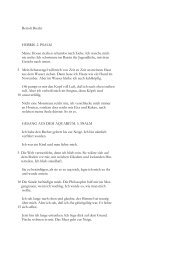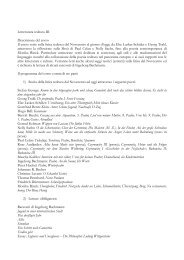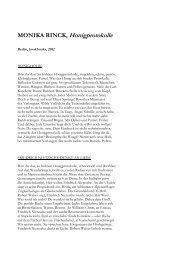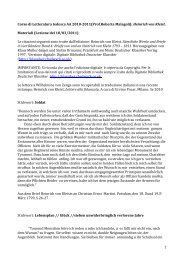You also want an ePaper? Increase the reach of your titles
YUMPU automatically turns print PDFs into web optimized ePapers that Google loves.
OTFRID 119<br />
IV<br />
OTFKID<br />
There is hardly a poet in the Old or Middle High German literature<br />
who at the same time is so well known, and yet so unknown as Otfrid.<br />
Almost all biographical works from Trithemius up to modem times,<br />
the annals of the Benedictine Order, the histories of many monasteries,<br />
ihe Chronicles of Elsass, &c., all mention the celebrated ' monachus<br />
Wizanburgensis,' and tell us much about his knowledge and talents, but<br />
we leam from all these sources scarcely more than we are able to<br />
gather from his own work.<br />
So much is, however, certain, that he was a pupil of the renowned<br />
Fulda abbot Rhabanus Maurus: 'A Rhabano Mauro,' says he in his<br />
letter to Archbishop Liutbert of Mainz, ' educata parnm mea parvitas<br />
est.' It is also quite certain from his letter to the two St. Gallen monks,<br />
Hartmuat and Werinbert, that at a later period he lived in the monastery<br />
at Weissenburg in Elsass, where he also wrote, about 870 A. D., his<br />
Evangelienbuch or Evangelienharmonie, containing the Vita et passio<br />
Christi in the Rhenish Franconian dialect, and dedicated the work to<br />
the Emperor Ludwig.<br />
The exact dates of the poet's birth and death are unknown. It has<br />
been shown with great probability that Otfrid's native place was somewhere<br />
in the Speiergau on the Middle Rhine. And with this assumption<br />
also agrees the fact that Otfrid always speaks of himself as being a<br />
Frank, and designates his language as Franconian.<br />
The wh<strong>ol</strong>e work is divided into five books. Otfrid himself seems to<br />
have felt that it<br />
might seem strange why his poem was divided into five<br />
books since there were only four Gospels and<br />
;<br />
he therefore expresses<br />
'<br />
the reason of this division in the f<strong>ol</strong>lowing words : Hos in quinqne<br />
'<br />
ideo distinxi,' says he, quia eorum qnadrata aequalitas sancta nostrorum<br />
quinque sensuum inaequalitatem ornat, et superflua in nobis quaeque<br />
non s<strong>ol</strong>um actuum verum etiam cogitationum vertunt in elevationem<br />
caelestium.* From this it f<strong>ol</strong>lows that Otfrid's poem is by no means to<br />
be regarded as a mere translation of the four Gospels, and that Otfrid<br />
sought to furnish anything but a translation. It was rather his intention<br />
to give an account of the life and teaching of Christ, based partly on<br />
the Gospels, but partly also on other sources, the most important of<br />
which were :


